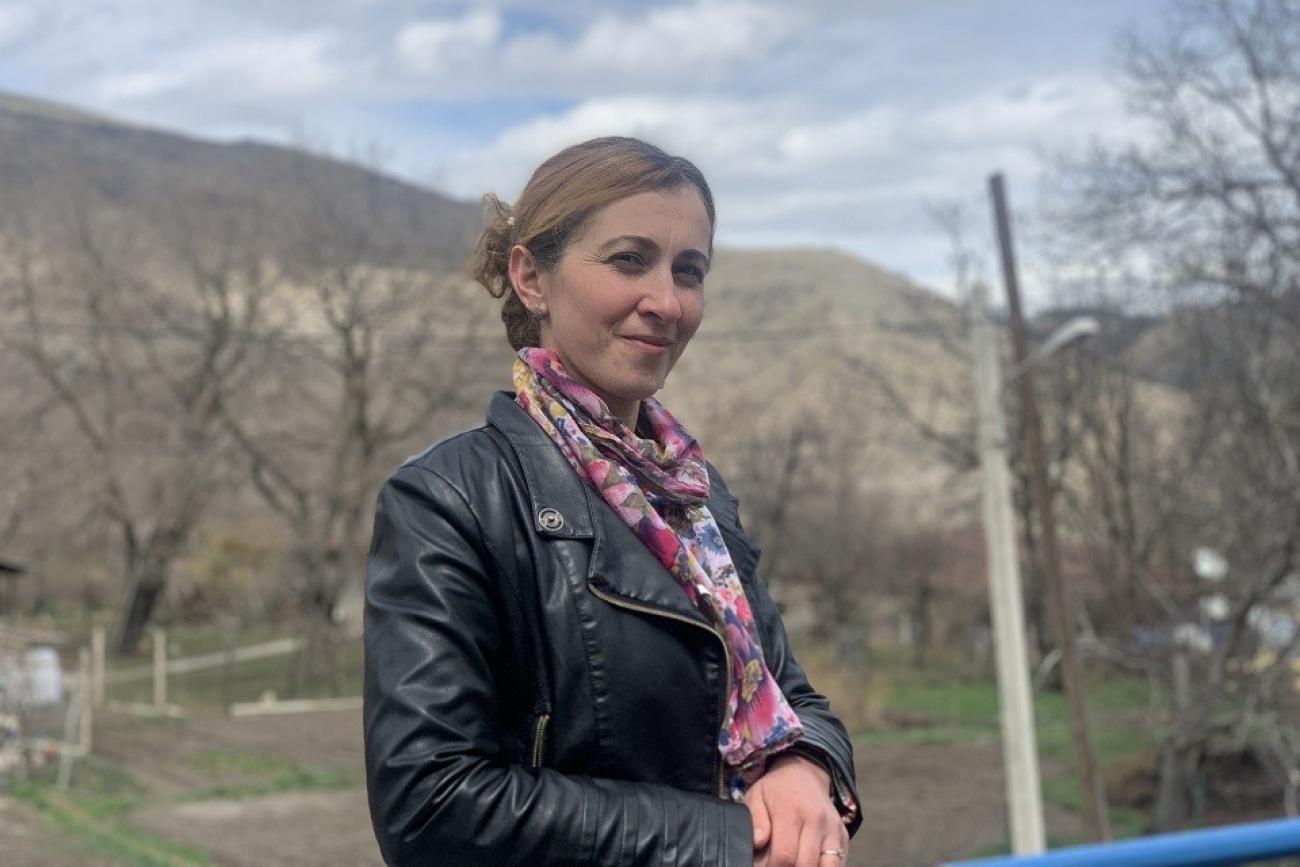“Cows, calves, rabbits, chickens - and then housework and family,” says 35-year-old Mzia Surmanidze as she names the series of household chores she does every morning from seven o’clock. Caring for rabbits was added to her daily schedule three years ago: it was then that Mzia received funding from a UN Women and TASO Foundation project and became the first to build a rabbit farm in Aspindza Municipality (Samtskhe-Javakheti region).
Mzia lives in the village of Khertvisi with her husband and three children. A dentist by profession, she has never been employed, but rabbit breeding has completely changed her daily life: “Taking care of animals is very time-consuming. My husband and children also help me, but I know that the rabbits are always waiting for me. They recognize who is approaching them by the sound of footsteps, and then they make you feel like they recognize you with their movements. For instance, when I go to see them, they gather in a corner, and while I am cleaning and throwing their food in for them, they just stay still and wait for me to finish. I call them by their nicknames and talk to them, and this kind of communication makes me feel relaxed.”
Up to now, the young farmer has already sold more than 35 rabbits, and she has turned this activity into a source of income. However, Mzia’s work is not limited only to farming; she is actively involved in the initiatives of the TASO Foundation that are taking place in Aspindza Municipality within the framework of the UN Women project “Women’s Economic Empowerment in the South Caucasus”. Mzia’s rabbit farm and a three-month English language course were also financed by this project. Together with Mzia, 21 women in Aspindza received funding to start their own businesses, seven women took professional courses, and 165 women participated in social mobilization.
“It was from the women in Toloshi that I first heard there was such an initiative in Aspindza Municipality,” Mzia recalls, “and I decided that we too should participate from Khertvisi. We used to go to the meetings in Toloshi on foot, and I had to take my children with me quite often, as I had nobody to leave them with. I can say that I practically brought them up at those meetings and events. Little did I think then that I would gain new knowledge and have my own business one fine day - and that my business would turn into a successful one!” Mzia adds that the project changed the lives of her fellow women villagers as well: she encouraged them to get out of their homes, made them feel more self-confident and taught them their rights, as well as how to use resources.
“We women did not use to attend village gatherings at all,” Mzia says, “but now everything has changed: whenever they call from our self-government to organize meetings, they always say, ‘Let the women know.’ We, like soldiers, are now always on the front line.”
The empowerment of women has already brought beneficial changes for the people of Khertvisi. After conducting a needs study, the women met with the local self-government in a round-table format, introduced the challenges faced by their fellow villagers and achieved the first results: with their advocacy, the bridge connecting the village to the school was repaired, and the renovation of the cultural gathering space will be completed soon. The women’s next plan is to open a library and a pharmacy in the village. “We are very active, and we know everything will work out for us,” says Mzia, who is enthusiastically preparing for future initiatives.
The UN Women project “Women’s Economic Empowerment in the South Caucasus” is implemented by the Kakheti Regional Development Foundation, the TASO Foundation and CARE International in the Caucasus, with the financial support of the Swiss Agency for Development and Cooperation (SDC) and the Austrian Development Cooperation (ADC).






